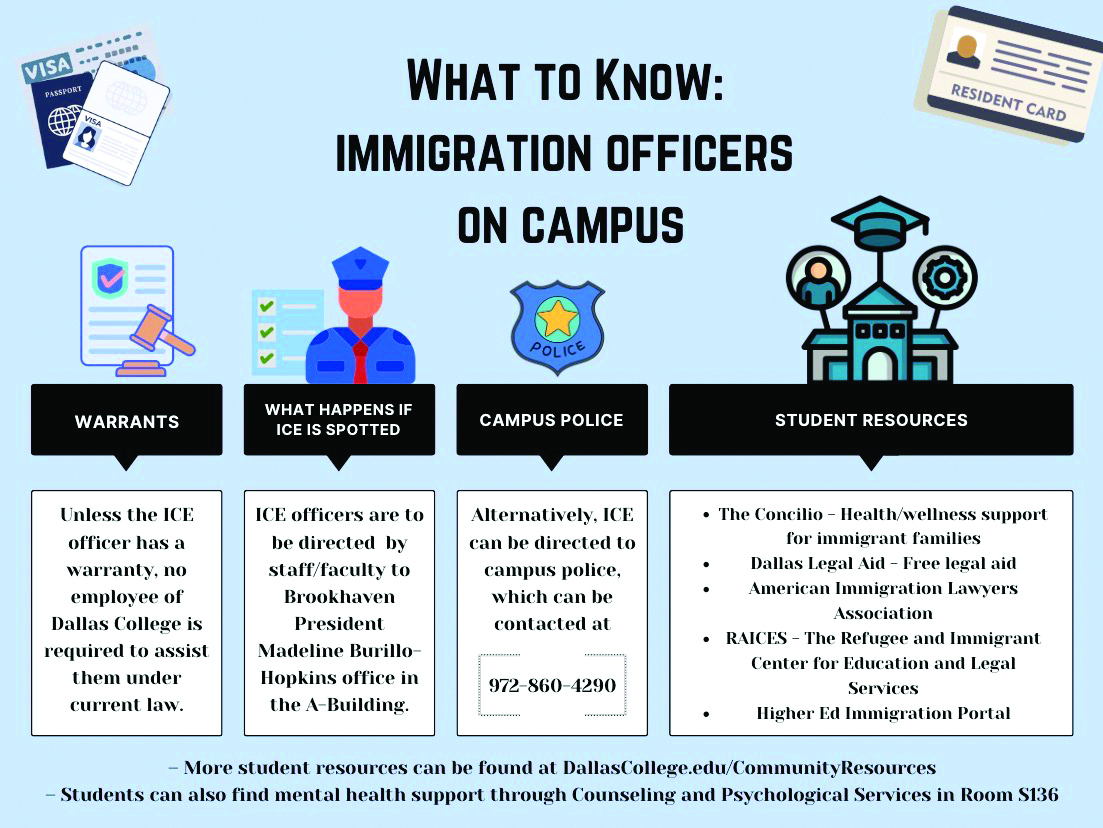Presidental Executive order leads to temporary amnesty for undocumented immigrants.
By Jubenal Aguilar
Staff Writer

Approximately 11.3 million undocumented immigrants live in the shadows of the United States, victims of the broken immigration system; a system Congress has failed to solve despite increasing pressure from pro-immigration activists. On June 30, President Barack Obama promised to act unilaterally if Congress did not act by the end of summer. Later, he delayed action, saying he did not want the issue to be politicized before the midterm elections.
Congress’ inaction allowed Obama to justify the executive action issued on Nov. 20. The main points of the measure include: providing additional resources to the Department of Homeland Security to restrict the flow of illegal crossings, making it easier and faster for skilled immigrants to stay in the country, and dealing responsibly with the millions of undocumented immigrants already in the country.
The last point will create a renewable program called Deferred Action for Parental Accountability, or DAPA. As the center of attention and controversy, most pundits say it will likely set the political battlefield over immigration for the remainder of Obama’s presidency.
According to uscis.gov nearly 5 million undocumented immigrants will be protected from deportation for at least three years. DAPA will benefit more undocumented immigrants than any other presidential executive action regarding immigration. DAPA recipients will be allowed work permits, including the same rights and benefits all citizen and resident workers have, according to the executive action.
Maxime Nogues, a Brookhaven College student, agrees that work permits should be given to DAPA recipients. “They are already working… they would pay taxes and contribute to the country,” he said.
During his address, Obama said: “Tracking, rounding up and deporting millions of people isn’t realistic.” However, granting an unconditional pardon is not a solution either. He said amnesty, an official pardon for individuals convicted of political offenses, would require legislature from Congress.
According to the measure, DAPA beneficiaries will include individuals who have children who are U.S. citizens or permanent residents and can prove continuous residence in the country for at least five years. The residents must also have entered the country before Jan. 1, 2010, must register and pass a criminal background check and must be willing to pay taxes.
Essentially, DAPA will allow families with direct ties to legal residents to remain together in the country, though their legal status will not change.
Deferred Action for Childhood Arrivals (DACA), a 2012 executive order by Obama, will see an expansion of its terms. The age limit for new and renewal applications will be removed, allowing individuals born prior to June 15, 1981 to apply. Continuous residency requirements and length of protection will be changed to reflect those of DAPA.
The president said DAPA will not apply to people who entered the country recently or those who come in the future. The program does not grant any legal status. It does not provide a pathway to citizenship or grant the same benefits that citizens enjoy. It also does not grant a permanent stay in the country.
Immediately after the announcement, conservatives voiced their opposition, repeatedly referring to the order as executive amnesty. Republicans say the executive action has no legal validity and that the president is overstepping the limits of his constitutional power.
In an unprecedented move supporting his actions, Obama released a memorandum drafted by the Office of Legal Counsel, an elite entity within the Department of Justice that provides legal advice to the president and the executive branch.
The 33-page document details the legality of the DHS proposal to provide “a form of temporary administrative relief from removal” to certain undocumented immigrants and “prioritize the removal of aliens who present threats to national security, public safety or border security.”
Likewise, OLC advised against granting deferred status to parents of DACA recipients based on observations that “immigration laws do not express … concern for uniting persons who lack lawful status (or prospective lawful status) in the United States with their families.”
Republicans seek to prevent the implementation of DAPA with threats to shut down the government and to defund the program.
Alfonzo Aguilar, a Latino conservative who served as chief of the Office of Citizenship under President George W. Bush, said to a Univision news station that U.S. Citizenship and Immigration Services is funded almost entirely from fees paid by applicants for the agency’s services. A government shutdown would not affect its operations because it does not receive funds from Congress through the traditional appropriations process.
According to Brian Beutler, senior editor for The New Republic, Republicans plan a spending bill that would fund the government through September 2015 but would exclude the DHS. Funding for DHS would need renewal in the spring. The Republican hope is for Obama to back down on his immigration stance due to the imminent threat of a lapse in funding for DHS.
Beutler said the move will accomplish little. He said, “it’s basically [a] complete surrender” by a party out of ideas.
Asmara Saleemi, a government professor at Brookhaven, said the president is taking a political risk with the Democrat’s sights fixed on the 2016 elections. She said Obama may be feeling pressured by the Latino voting powers that helped him secure the presidency in 2008.
Saleemi said the executive action is “a greater expansion of the executive power” even if the president uses it legitimately. She said a future president could use Obama’s act as a precedent to expand executive power.
USCIS expects to begin accepting applications for DAPA by mid-2015. Applications for the expanded DACA program will be accepted around March 2015. The official list of documents needed to prove an applicant’s identity and continued residency are not expected to be announced until 2015.






